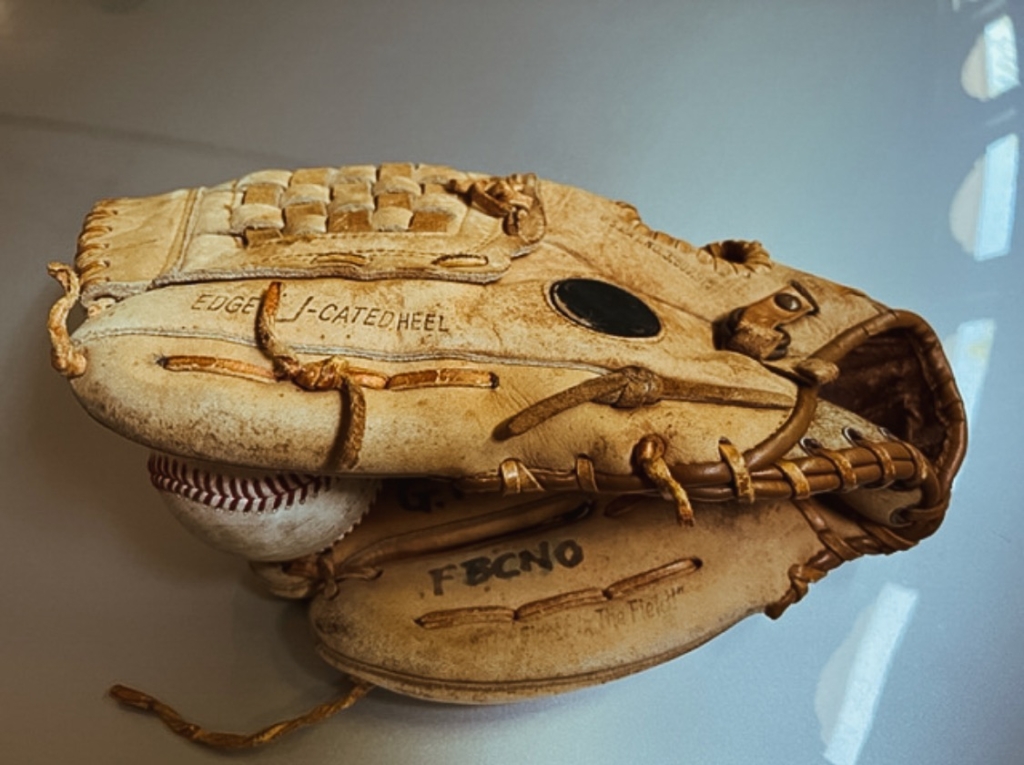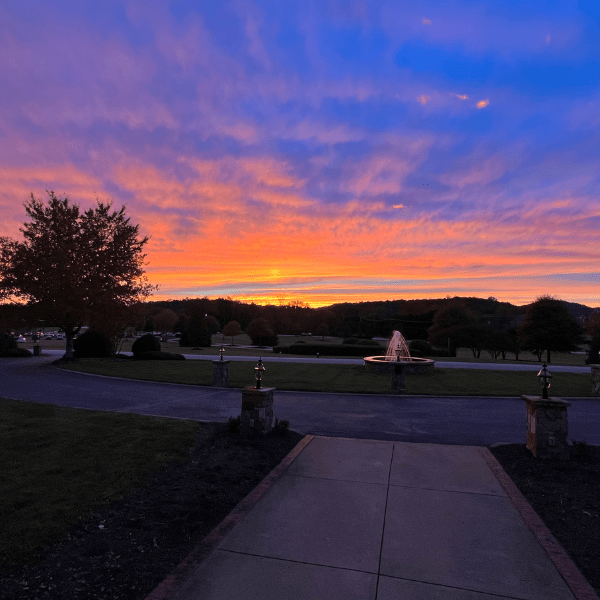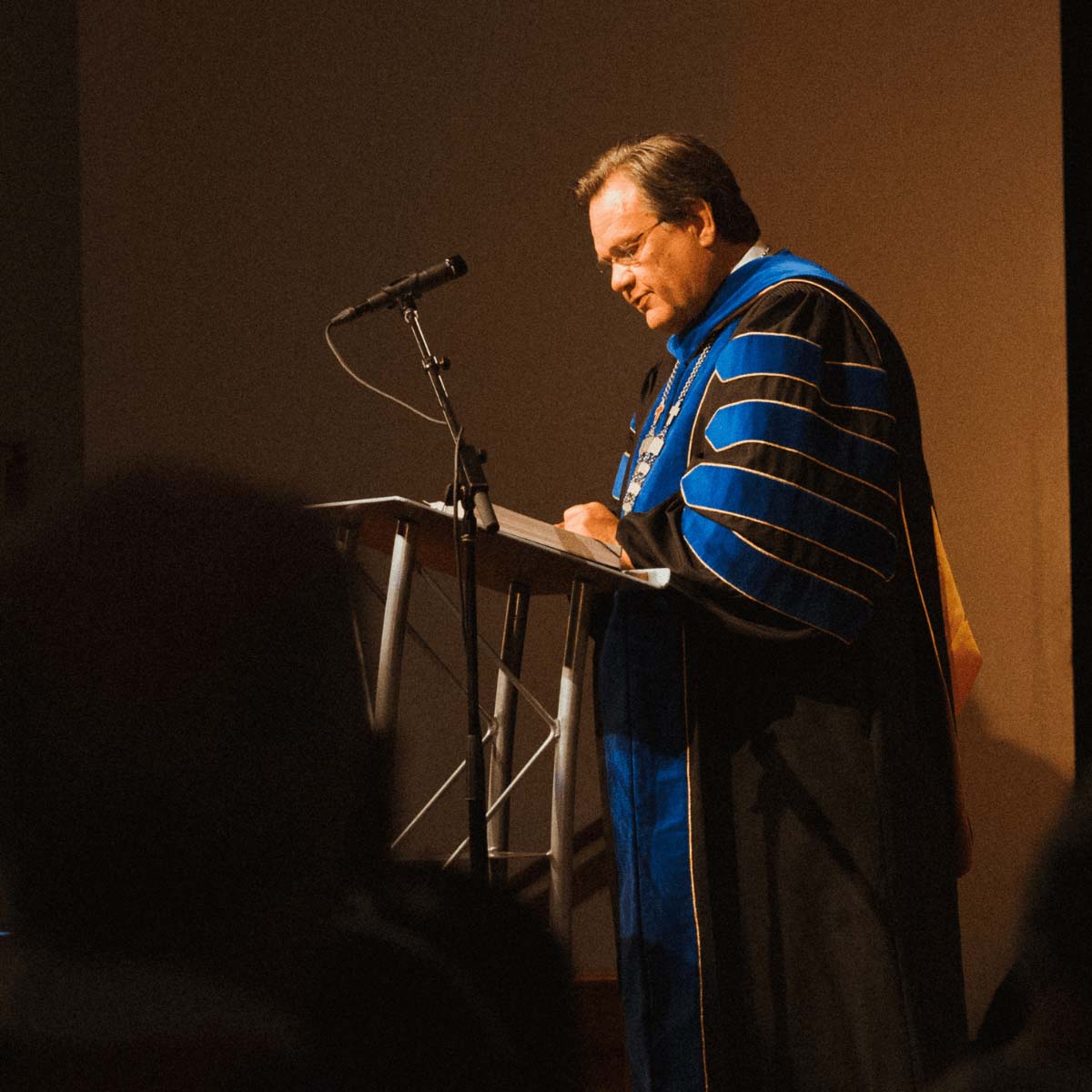Putting on My Old Baseball Glove
Posted on: June 2, 2022

Baseball filled my calendar over the past couple of weeks. I have the incredible joy of serving as the president of North Greenville University in Tigerville, South Carolina. NGU is a special place, made all the more special by students who participate in the fine arts and athletics at a high level. Our baseball team just hosted and won the Super-Regional championship of the NCAA Division II tournament and now heads to the College World Series in Cary NC. A week ago, we had a university event at the Greenville Drive, our local Red Sox minor league affiliate, where well over 100 alumni and friends gathered to hear our students sing the national anthem and watch me throw the first pitch. That morning I grabbed my old glove from the garage and threw a bit. It was fun to slide on my old Rawlings glove and pretend that I’m not nearing 60. In fact, it made me think about how life surprises us sometimes.
In 1989, Lisa and I were newlyweds, preparing to move to New Orleans for graduate school. As we spent the summer saying farewell to our friends and family, I played one last season on the softball team I had been on—in one form or fashion—since I was fourteen. I decided to buy a new glove at the beginning of the season, as the one I’d used for many years was failing. It was a leather Frankenstein at that point, but it had been a faithful friend for countless contests.
I had no idea what that purchase would become.
I can’t remember where I bought the new glove. I’m a lefty so I knew I would need to take what I could find, this being before the days of online shopping. It was a Rawlings, genuine leather, with a beautifully woven web and Dave Parker’s name stamped in the palm. Parker had been a genial All-Star with the Pirates and while he was not a particular diamond hero of mine, I had enjoyed watching him play with Willie Stargell on the World Series team in 1979 and, well, I liked the feel of the glove, so I laid out the hard-earned cash and started to break it in.
Anyone who has played ball knows how much on an extension of your body a well-conditioned glove is. It fits, well, like a glove. Its fingers are your fingers. Its length is the length of your own arm. That hole for the index finger feels as natural as the relaxed, unsheathed digits of the bare hand. I finished that season, and the glove went into a moving box.
In New Orleans, I played their unique brand of softball—overhand fast pitch, basically baseball with a larger ball. It was fun, and I still was in my 20s, so it scratched an itch, and I gained more friendships with new teammates. When I finished that degree, we moved to another city. More ball, more new friendships. A few years later, another city, another team, but this time, I was in my mid-thirties and wasn’t enjoying playing as much. I decided it was time to pack up my bag and find other activities. Soon, our twins, Ethan and Emily, were born. No more time for sports. Family life was exciting and provided a new routine.
When the twins were five, they played t-ball. We bought them inexpensive gloves, knowing the kids would outgrow them quickly. The backyard became the place for after-school games of catch. I found the glove that had survived multiple moves at that point, slid it on, and loosened up my arm.
By this point, the glove was well over a decade old. The leather had held up well, but the stylized, cursive “R” for Rawlings in a prominent circle over the back of the thumb was barely discernible. The Dave Parker signature was faint, but the feeling of sliding my hand into the glove was completely unchanged and unmistakable.
I had an epiphany as I was tossing the ball: I had bought a glove just to have a new glove for a pastime, but I had actually bought a glove that was a down-payment on memories that now I wouldn’t trade for anything. I had bought the glove that I would wear to play catch with my children.
There is a special connection sometimes between material objects and the mile-markers of life. We call these “touchstones,” things we can touch that resonate with important memories and events. I can pull out that glove and smell it and immediately think of the newly mown dewy grass of early spring, the thirsty dust of mid-summer, and the sweat of youth. I can slip it on and feel the soft pad of catching a ball tossed by a five-year-old, or the hard slap of one from a more skillful twelve-year-old, or the sting of a hard-throwing old friend who wants to show off a bit.
My kids are adults now. One day perhaps they will have kids of their own, and I can use that glove to play catch with my grandchildren. I can’t imagine 25-year-old me being able to wrap his mind around the reality that the glove I was buying might one day catch tosses from a granddaughter or a grandson. But this is how life works: we live it, time moves on, and it surprises us constantly with memories and providential intersections. This is one of the things we lose in the digital age. I have no old files of Tetris or Pac-Man that I can pull out of a box and share. I can’t imagine that it would be the same experience anyway as feeling a ball in my fingertips and sliding that glove yet again for a catch. I’m pretty sure Tetris doesn’t smell as good as my Rawlings either. And that’s a pretty awesome thing.




